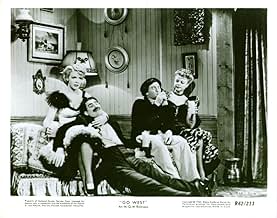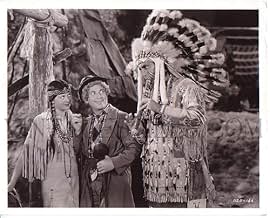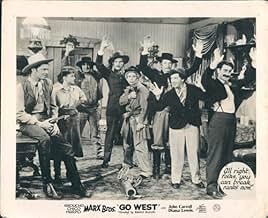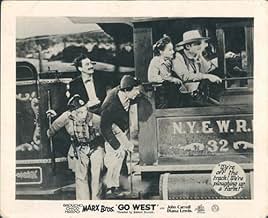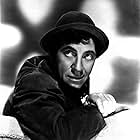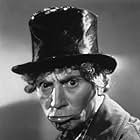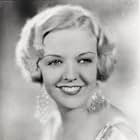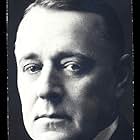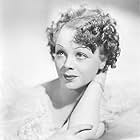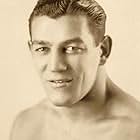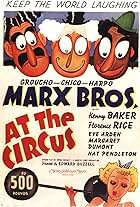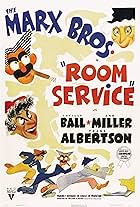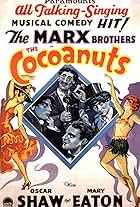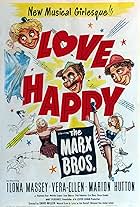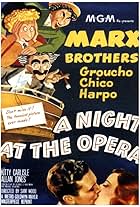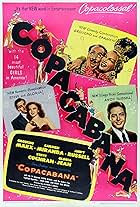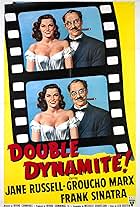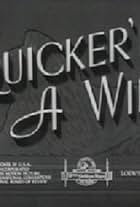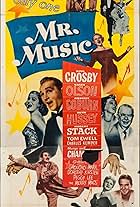IMDb RATING
6.8/10
5.9K
YOUR RATING
The Marx Brothers come to the rescue in the Wild West after a young man, trying to settle an old family feud so he can marry the girl he loves, runs afoul of crooks.The Marx Brothers come to the rescue in the Wild West after a young man, trying to settle an old family feud so he can marry the girl he loves, runs afoul of crooks.The Marx Brothers come to the rescue in the Wild West after a young man, trying to settle an old family feud so he can marry the girl he loves, runs afoul of crooks.
Iris Adrian
- Mary Lou
- (uncredited)
Barbara Bedford
- Baby's Mother on Stagecoach
- (uncredited)
Margaret Bert
- Train Passenger
- (uncredited)
Clem Bevans
- Railroad Official
- (uncredited)
Rudy Bowman
- Barfly
- (uncredited)
Frederick Burton
- Johnson
- (uncredited)
Earl Covert
- Specialty in 'As If I Didn't Know'
- (uncredited)
Edgar Dearing
- Bill - Train Engineer
- (uncredited)
- Director
- Writers
- All cast & crew
- Production, box office & more at IMDbPro
Storyline
Did you know
- TriviaThe name of Groucho Marx's character, "S. Quentin Quale", caused a stir when the film was first released due to the subtle but clear joke: the use of the term "San Quentin quail", which means "jail bait".
- GoofsAfter Terry rides in to see Eve, his horse's rein tightens as an offscreen crew member starts to lead it away.
- Quotes
S. Quentin Quale: Lulubelle, it's you! I didn't recognize you standing up.
- Crazy creditsOpening card: Foreword: In 1851, Horace Greeley uttered a phrase that did much to change the history of these United States. He said: Go West, young man, go west. This is the story of three men who made Horace Greeley sorry he said it.
- ConnectionsEdited into Hollywood: The Dream Factory (1972)
Featured review
After the success of A DAY AT THE RACES the Marx Brothers had a serious problem. The man who brought them back into the movie game has been Irving Thalberg, who took them seriously as comic artists, let them rehearse and hone their material on stage, and gave them a percentage of the gross sales, had died in 1937. Thalberg's rival, Louis B. Mayer grabbed control of Thalberg's production unit. Mayer (whose negative effects on careers from John Gilbert to Judy Garland are becoming more known as time passes) hated comedians, and he disliked people who got contracts that took profits away from his company. He was, in fact, a selfish individual who got his just deserts in the 1950s when he was thrown out of his job by his shareholders, and found nobody in Hollywood wanted anything to do with him.
Mayer had no great love for the Marxes, and allowed RKO a loan out of them for ROOM SERVICE. I feel that film has a lot still going for it, but many people don't like it as too confining for the antics of the Marxes. Then in 1939 MGM put them into AT THE CIRCUS, even bringing back Margaret Dumont. But the results are generally mediocre (although Groucho has one of his best songs, "Lydia the Tattooed Lady"). It was symptomatic of Mayer's lack of interest in their film work - they were not sent out to test their material.
Then in 1940 came GO WEST.
The Marx Brothers had not been the first comedians that Mayer disliked. He had a negative view of silent film genius Buster Keaton. Keaton's masterpieces of the silent films had been successful for the most part, but he had been produced by Joseph Schenck, his brother-in-law, and a rival of Mayer. Joe Schenck died in the early 1930s. At that time Keaton's films were not doing as well as in his heyday, mostly due to contracts with MGM that took away his independence in production matters. Also his wife, Nathalie Talmadge, was finding her movie stardom ending, and their marriage was collapsing. Keaton took to heavy drinking, which hurt his performances in the sound films he made. Jimmy Durante was co-starred in several films with Keaton, like THE PASSIONATE PLUMBER and WHAT, NO BEER! but though the men became friends their styles of humor did not mesh. By 1935 Keaton was a has-been in Hollywood, and by the end of the decade was only appearing in minor films as comedy relief, or used as a gag writer.
Possibly Mayer decided (for some twisted reason) to put Keaton on the writing staff for GO WEST. It certainly was not with any belief in the "Great Stone Face" as a gag man or a comedian. But it is also more than likely that he put him into it to damage the Marxes still more, and to humiliate Keaton. Knowing Mayer I would not put it past him.
Groucho Marx lived to become a national icon due to his movie, radio, and television career. In his later years (before senility began to affect him) he was invited on all the talk shows, and would discuss his brothers and their films, and comedy in general. He would also drop off his acid comments which made the audiences laugh (it helped Groucho that he lived long enough to find less censorship of his lines than he faced in the 1930s and 1940s). But he was a disagreeable man in private life, being thoroughly honest on one hand, but thoroughly nasty on the other. With Keaton, given his recovering alcoholic state in 1940, you had to be respectful and kindly.
Keaton had a dream that never reached the screen. In 1933 he had seen GRAND HOTEL, and liked the concept of interlocking stories involving sets of big name stars. He wanted to do a comic version called GRAND MILLS HOTEL, with himself, Laurel and Hardy, Marie Dressler, and other comedians (Edward Everett Horton was another) intermingling in a third rate hotel. The idea never came to fruition. No doubt, in thinking of it, Keaton might have considered having the Marxes in the film too. He was a genuine appreciator of comic genius.
But here it was 1940, and Keaton was working on a film with the Marxes. Keaton went to a script meeting, and outlined an idea for a scene. Groucho listened. His expression was bland. When it was finished, apparently with a sneer, Groucho said: "You really think that was funny?" Keaton, somewhat crestfallen, replied: "I just thought it might work...you fellows are pretty funny by yourselves."
There are Keatonian touches in the movie: Harpo's showdown with the saloon keeper town boss, where he pulls out a shaving brush that fires a shot into the floor. Also the wrecking of the train at the conclusion, which reminds one of Keaton's love of trains (OUR HOSPITALITY, THE GENERAL). Possibly he had a hand in the great opening of the film, where Groucho is the city slicker fleeced by Chico and Harpo when he tries to fleece them. It did not help GO WEST that only three years before Laurel and Hardy made one of their two best features, WAY OUT WEST, nor that W.C.Fields and Mae West did MY LITTLE CHICKADIE in 1939. Both of those films are way better than the slow going GO WEST.
One wishes that Groucho had been more charitable to Keaton, because the latter did finally find a comedian who listened and worked with him. That was Red Skelton, who would work on several films with Keaton in the late 1940s and early 1950s, one of which, A SOUTHERN YANKEE, is very funny indeed. But Keaton allowed Groucho precedence of being a successful comic in GO WEST, with mediocre results. Perhaps Groucho deserved the failure that resulted. Hubris is it's own reward.
Mayer had no great love for the Marxes, and allowed RKO a loan out of them for ROOM SERVICE. I feel that film has a lot still going for it, but many people don't like it as too confining for the antics of the Marxes. Then in 1939 MGM put them into AT THE CIRCUS, even bringing back Margaret Dumont. But the results are generally mediocre (although Groucho has one of his best songs, "Lydia the Tattooed Lady"). It was symptomatic of Mayer's lack of interest in their film work - they were not sent out to test their material.
Then in 1940 came GO WEST.
The Marx Brothers had not been the first comedians that Mayer disliked. He had a negative view of silent film genius Buster Keaton. Keaton's masterpieces of the silent films had been successful for the most part, but he had been produced by Joseph Schenck, his brother-in-law, and a rival of Mayer. Joe Schenck died in the early 1930s. At that time Keaton's films were not doing as well as in his heyday, mostly due to contracts with MGM that took away his independence in production matters. Also his wife, Nathalie Talmadge, was finding her movie stardom ending, and their marriage was collapsing. Keaton took to heavy drinking, which hurt his performances in the sound films he made. Jimmy Durante was co-starred in several films with Keaton, like THE PASSIONATE PLUMBER and WHAT, NO BEER! but though the men became friends their styles of humor did not mesh. By 1935 Keaton was a has-been in Hollywood, and by the end of the decade was only appearing in minor films as comedy relief, or used as a gag writer.
Possibly Mayer decided (for some twisted reason) to put Keaton on the writing staff for GO WEST. It certainly was not with any belief in the "Great Stone Face" as a gag man or a comedian. But it is also more than likely that he put him into it to damage the Marxes still more, and to humiliate Keaton. Knowing Mayer I would not put it past him.
Groucho Marx lived to become a national icon due to his movie, radio, and television career. In his later years (before senility began to affect him) he was invited on all the talk shows, and would discuss his brothers and their films, and comedy in general. He would also drop off his acid comments which made the audiences laugh (it helped Groucho that he lived long enough to find less censorship of his lines than he faced in the 1930s and 1940s). But he was a disagreeable man in private life, being thoroughly honest on one hand, but thoroughly nasty on the other. With Keaton, given his recovering alcoholic state in 1940, you had to be respectful and kindly.
Keaton had a dream that never reached the screen. In 1933 he had seen GRAND HOTEL, and liked the concept of interlocking stories involving sets of big name stars. He wanted to do a comic version called GRAND MILLS HOTEL, with himself, Laurel and Hardy, Marie Dressler, and other comedians (Edward Everett Horton was another) intermingling in a third rate hotel. The idea never came to fruition. No doubt, in thinking of it, Keaton might have considered having the Marxes in the film too. He was a genuine appreciator of comic genius.
But here it was 1940, and Keaton was working on a film with the Marxes. Keaton went to a script meeting, and outlined an idea for a scene. Groucho listened. His expression was bland. When it was finished, apparently with a sneer, Groucho said: "You really think that was funny?" Keaton, somewhat crestfallen, replied: "I just thought it might work...you fellows are pretty funny by yourselves."
There are Keatonian touches in the movie: Harpo's showdown with the saloon keeper town boss, where he pulls out a shaving brush that fires a shot into the floor. Also the wrecking of the train at the conclusion, which reminds one of Keaton's love of trains (OUR HOSPITALITY, THE GENERAL). Possibly he had a hand in the great opening of the film, where Groucho is the city slicker fleeced by Chico and Harpo when he tries to fleece them. It did not help GO WEST that only three years before Laurel and Hardy made one of their two best features, WAY OUT WEST, nor that W.C.Fields and Mae West did MY LITTLE CHICKADIE in 1939. Both of those films are way better than the slow going GO WEST.
One wishes that Groucho had been more charitable to Keaton, because the latter did finally find a comedian who listened and worked with him. That was Red Skelton, who would work on several films with Keaton in the late 1940s and early 1950s, one of which, A SOUTHERN YANKEE, is very funny indeed. But Keaton allowed Groucho precedence of being a successful comic in GO WEST, with mediocre results. Perhaps Groucho deserved the failure that resulted. Hubris is it's own reward.
- theowinthrop
- May 28, 2004
- Permalink
- How long is Go West?Powered by Alexa
Details
- Release date
- Country of origin
- Language
- Also known as
- Los hermanos Marx en el oeste
- Filming locations
- Sonora, California, USA(train scenes)
- Production company
- See more company credits at IMDbPro
- Runtime1 hour 20 minutes
- Color
- Aspect ratio
- 1.37 : 1
Contribute to this page
Suggest an edit or add missing content


